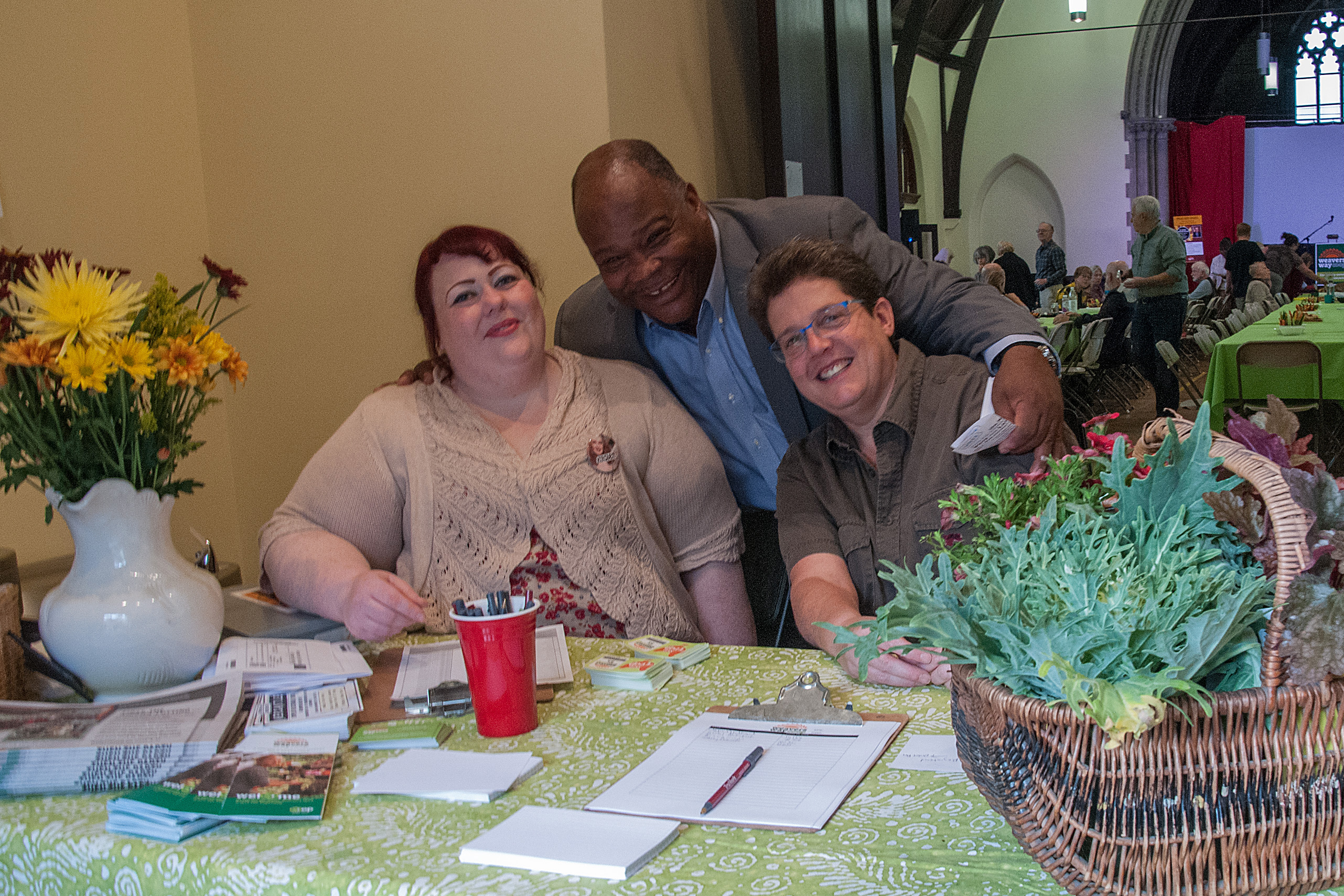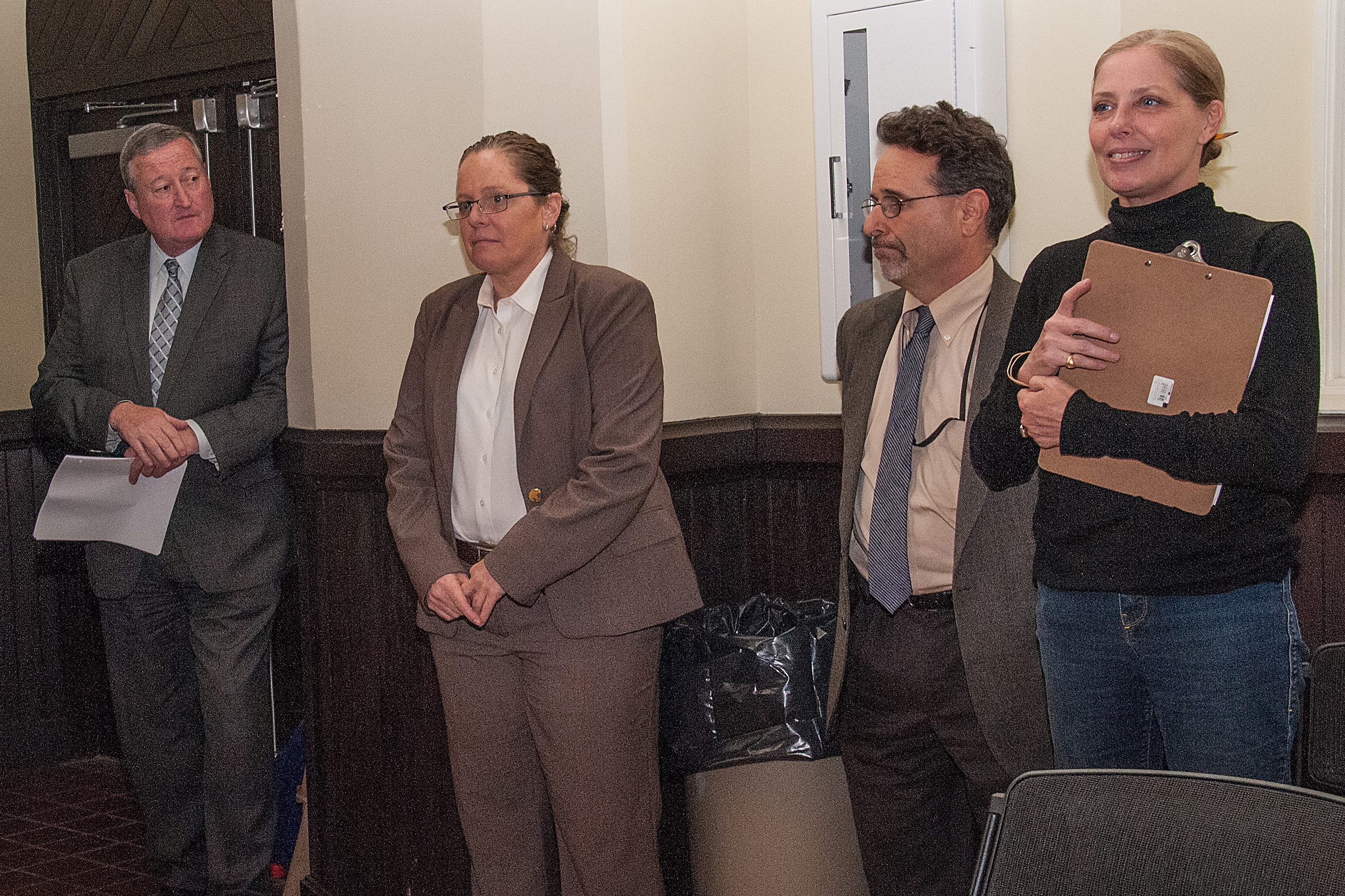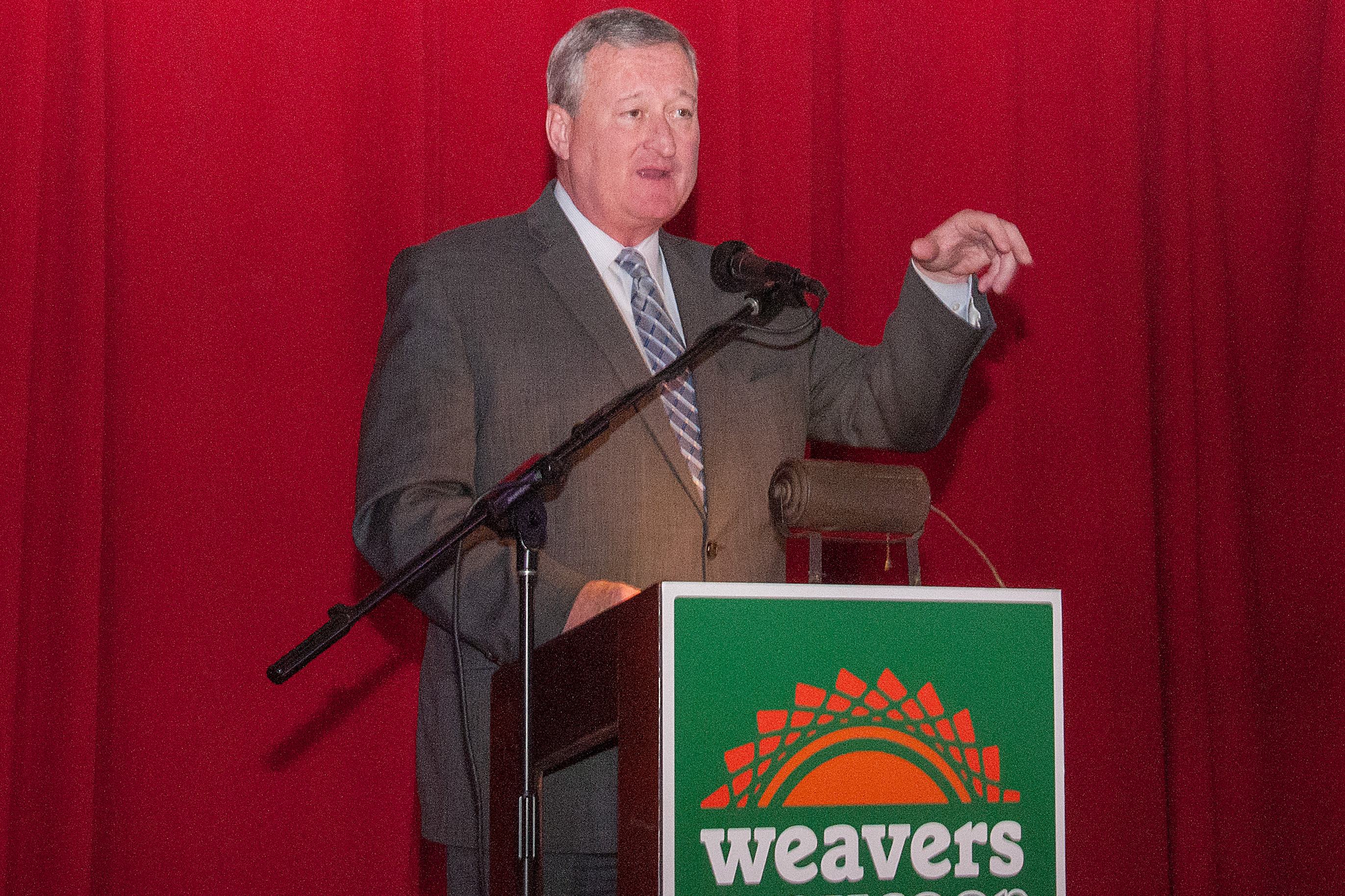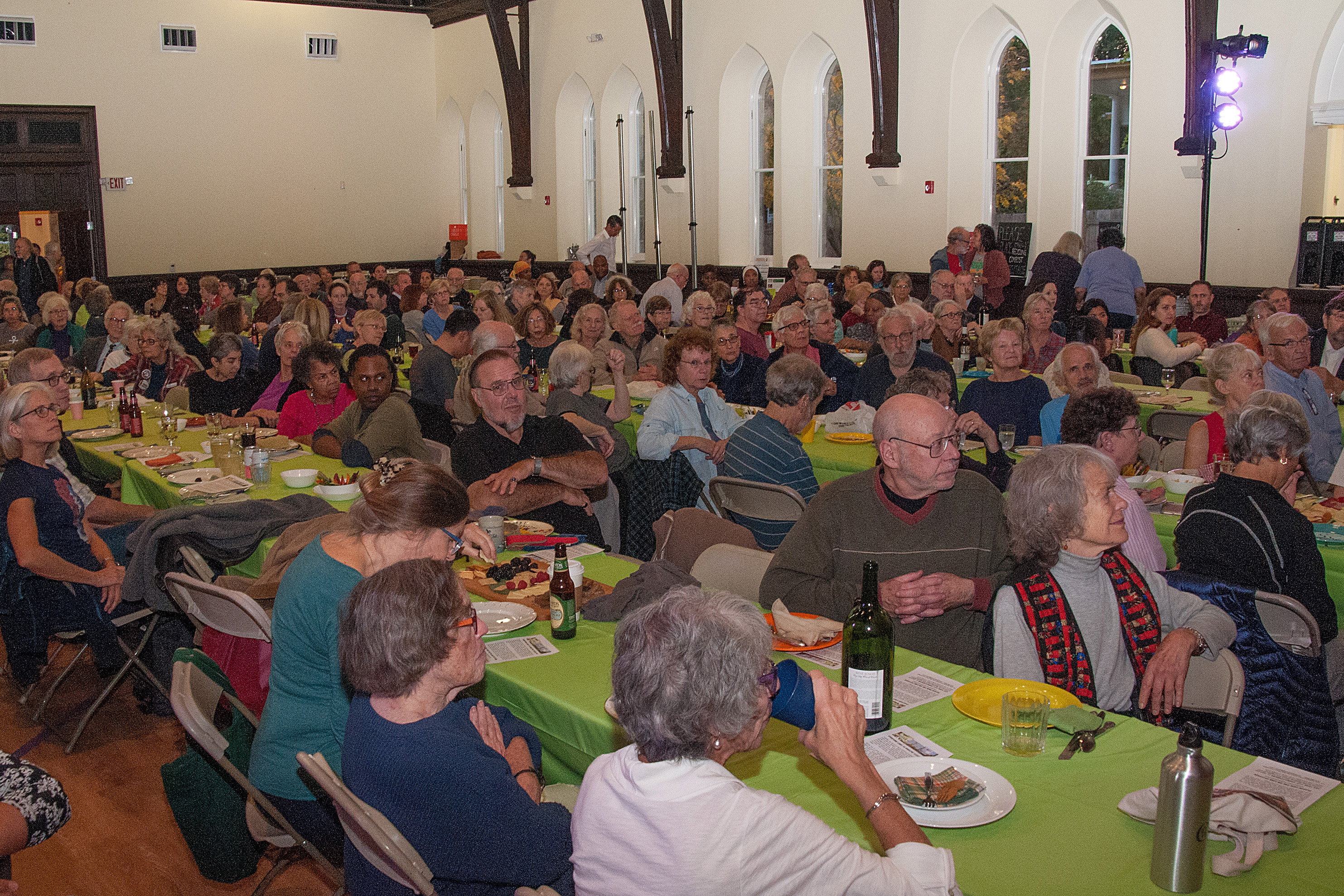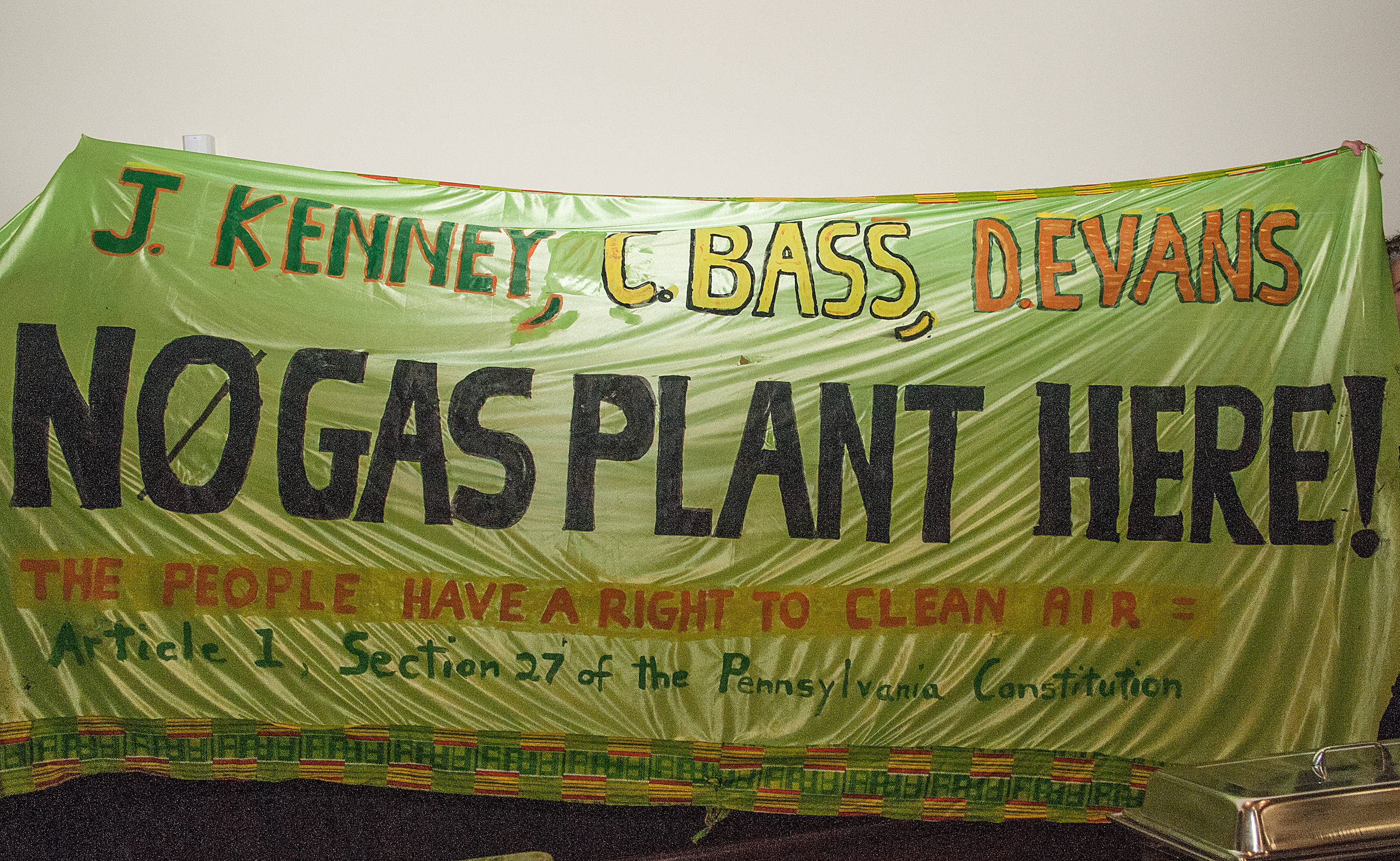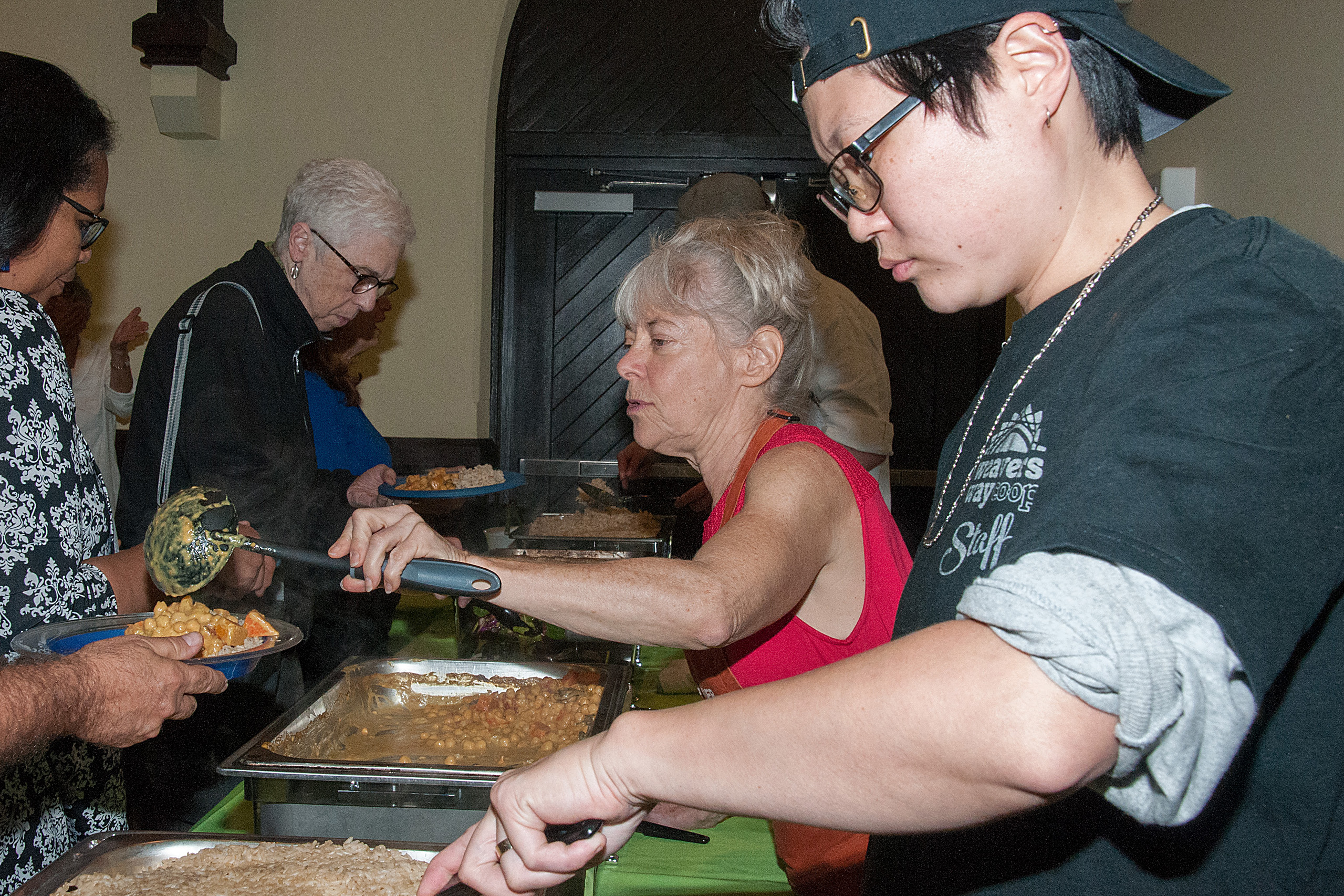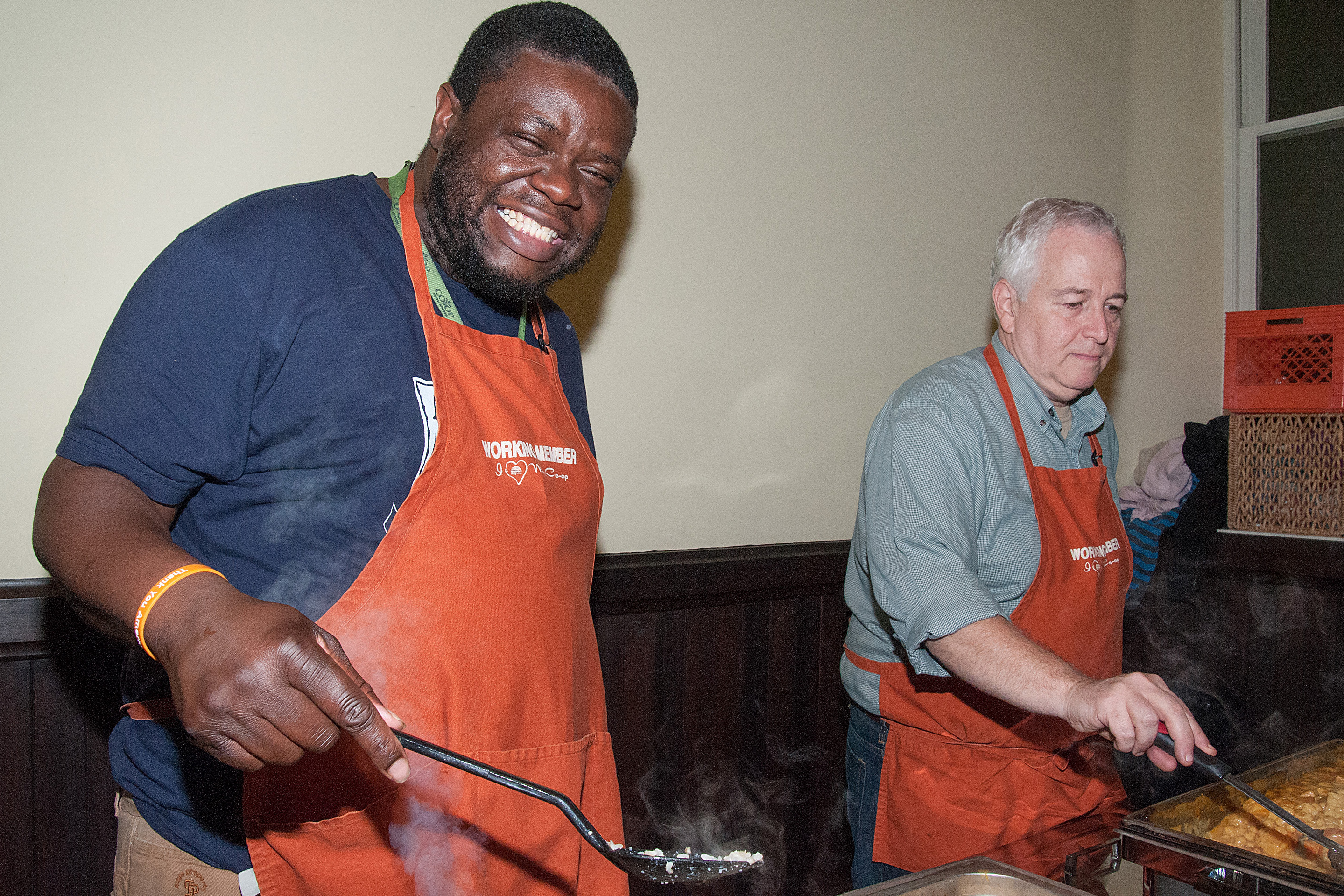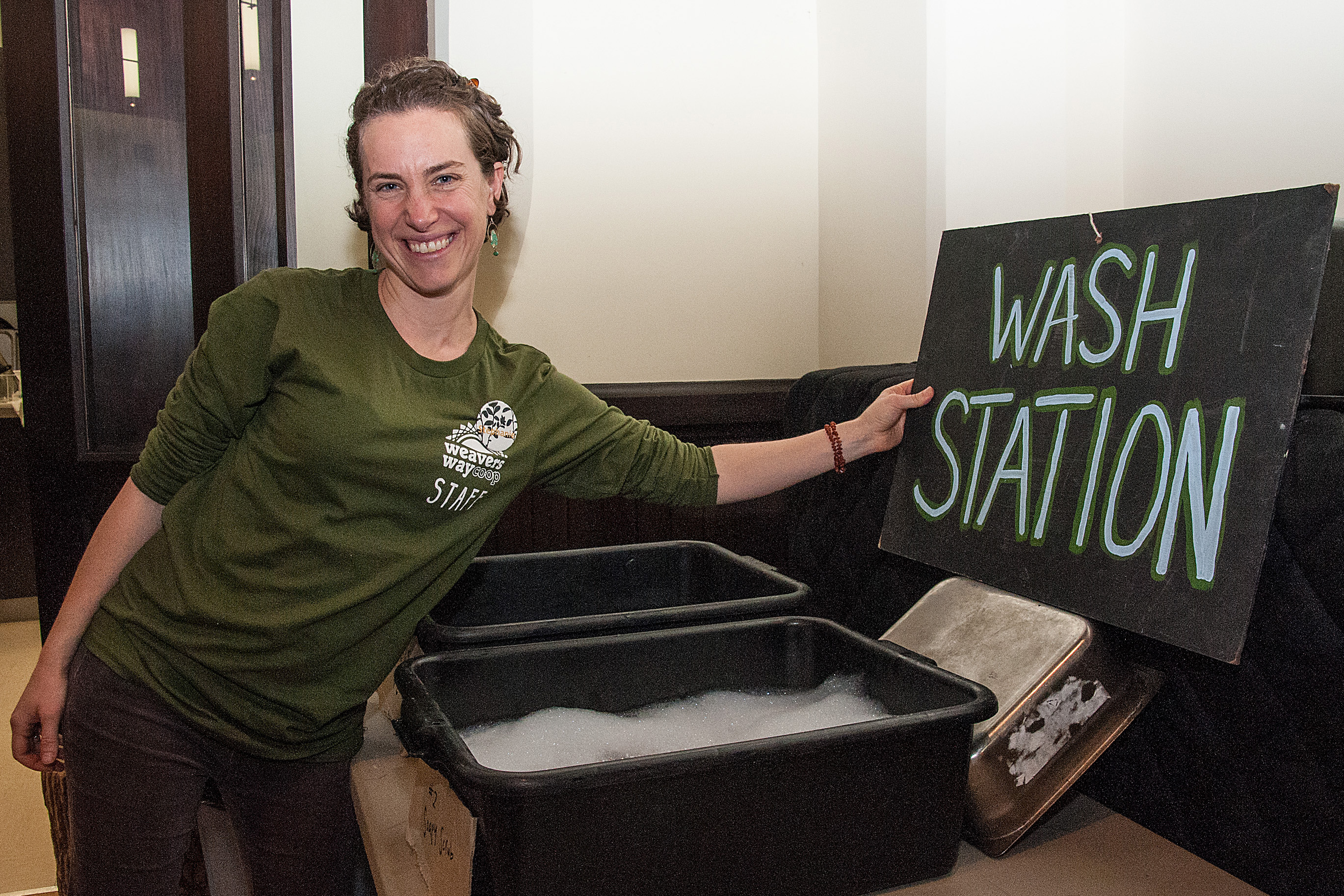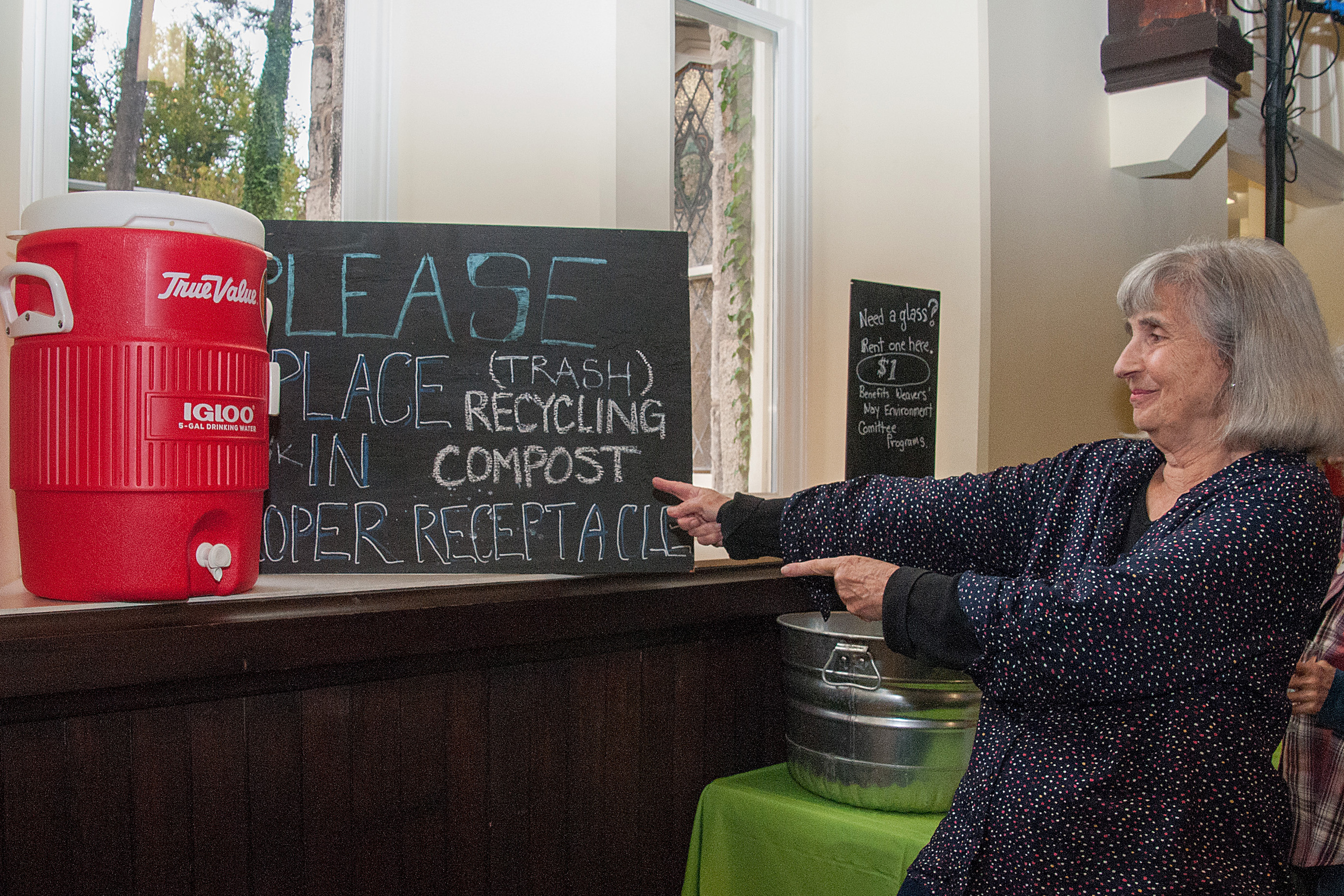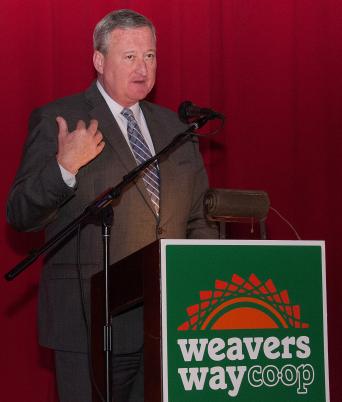
Mayor Kenney Keynotes Fall 2017 General Membership Meeting

See photo gallery below.
All photos by Weavers Way
Working Member Ellie Seif
by Jacqueline Boulden, for the Shuttle
Addressing an overflow crowd at last month’s Fall General Membership Meeting, Philadelphia Mayor Jim Kenney said he came to praise what the Co-op is doing and express his commitment to its work. “Philadelphia is proud of your success,” the first mayor to address a GMM told the 250-plus members gathered at the Waldorf School of Philadelphia in Germantown on Nov. 3.
Kenney, noting that the Co-op now has three stores, said this expansion shows how Weavers Way is leading by example, growing its business, creating jobs, buying local and serving the community.
“We know these locations can bring people together and can serve as community spaces,” Kenney said.
That community support may be even more important in the future. Just the day before addressing Weavers Way members, Kenney told City Council he would ask for the state’s School Reform Commission to disband itself and return public school control to the city. The SRC, which began overseeing the schools 16 years ago, voted to dissolve on Nov. 16. Kenney told Co-op members that he felt as if he had “jumped off a cliff” by taking on running the schools and figuring out how to pay for them and the projected $1 billion deficit over the next five years. But the mayor said the city needs to be accountable for the education of its 200,000 schoolchildren, adding, “We had to make a decision that public education is our responsibility.”
It was one of many applause lines for Kenney. The Co-op has strongly supported schools in the neighborhoods where it has stores—the C.W. Henry School in Mt. Airy and J.S. Jenks in Chestnut Hill, as well as W.B. Saul High School in Roxborough, which partners with Weavers Way Farms.
The mayor covered several other topics during his prepared remarks, then took off his glasses and took questions from Co-op members.
Asked about reducing the city’s carbon footprint, Kenney reiterated the city’s commitment to move toward 100 percent renewable energy and reduce carbon emissions by 80 percent. He said he will continue these efforts despite the White House’s withdrawal from the Paris climate agreement.
Kenney commiserated with Weavers Way members about the difficulty of eliminating plastic bags from retailers in the city, saying there is one proposal that has now gained traction but more needs to be done.
Co-op General Manager Jon Roesser directed Kenney’s attention to the group in the back of the room holding up a banner opposing SEPTA’s proposed natural-gas-fired power plant in Nicetown. Construction of the plant has been approved by SEPTA’s board but is opposed by many organizations, schools and several elected officials. Opponents say natural gas is not clean energy and they want SEPTA to move from fossil fuels to renewable energy. In addition, a report by the Environmental Protection Agency states that Nicetown already has more fine particulate pollution than three-quarters of neighborhoods across the country, which has resulted, in part, in an abysmal childhood asthma rate of one in every three children.
Kenney acknowledged the protesters, but noted that the city has only two votes on the SEPTA board. He promised to take the opposition to the project into account.
The mayor also talked about the high rate of poverty in the city — about 25 percent of the city’s residents — and said opioid addiction and drug violence add to problems in poverty-stricken neighborhoods. “The only way anyone is going to get out of poverty,” he said, “is through education.”
Returning to the subject of schools, Kenney responded to a question about how the new municipal school board would be formed in policy-oriented depth detail that underscored his longstanding focus on the issue of public education.
He has made improving education the centerpiece of his administration, first by taking on the implementation of a soda tax in part to fund universal preschool, and now by deciding to resume control over public schools and taking the necessary steps to pay for them.
“These are our kids,” he said. “And these children need to know they have value.”
Jacqueline Boulden is a Weavers Way working member.




